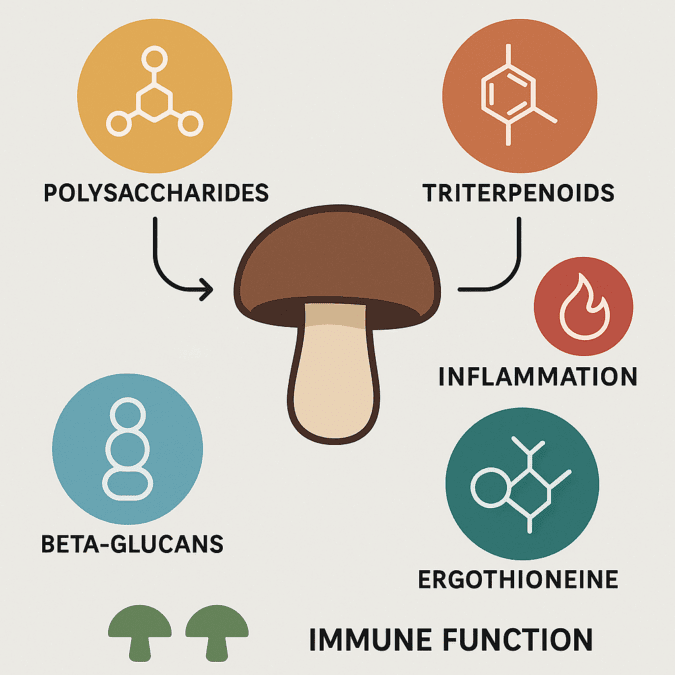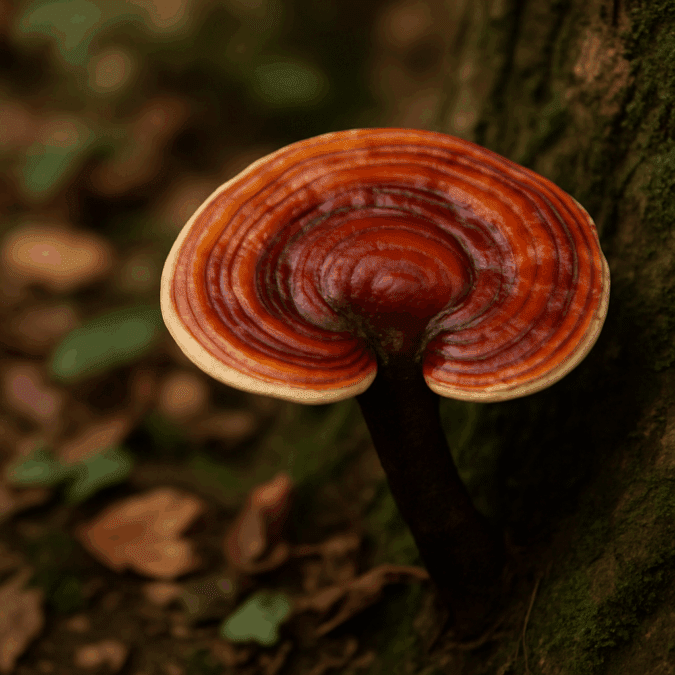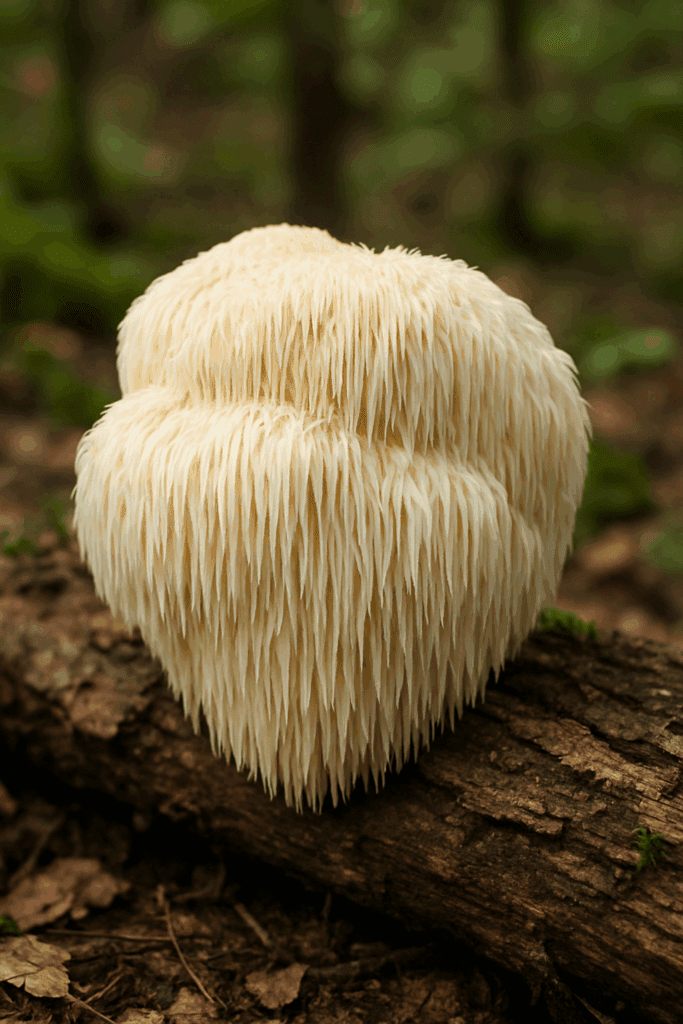Introduction: Exploring Nature’s Support for Joint Health
Arthritis, a complex and often debilitating condition, affects millions of individuals worldwide, interfering with daily comfort, mobility, and overall quality of life. While pharmaceutical treatments exist, many are now exploring natural alternatives that may offer complementary support for managing symptoms like inflammation, stiffness, and joint pain. Among the most fascinating emerging options are functional fungi, also known as medicinal mushrooms. Once prized solely in traditional medicine systems, these remarkable organisms are now receiving scientific attention for their potential role in promoting joint health. In this comprehensive exploration, we will dive deep into the best mushrooms for arthritis, uncovering their unique properties, examining the scientific evidence, and providing practical advice for those seeking a natural pathway to healthier joints.
You may also like: How Lion’s Mane Supplements May Support ADHD and Cognitive Clarity: What Science Says About Lions Mane for Focus and Brain Health
Functional mushrooms for arthritis are not a magic cure, but understanding their therapeutic compounds, traditional uses, and modern scientific validation empowers individuals to make informed decisions about their wellness journeys. As the fields of mycology and medicine continue to converge, a compelling picture emerges: mushrooms offer more than culinary delight; they may indeed hold keys to better joint health.
Understanding Arthritis and the Need for Natural Support
Arthritis is not a single disease but a broad term encompassing over 100 different conditions that affect the joints. The most common types include osteoarthritis, which involves the breakdown of cartilage over time, and rheumatoid arthritis, an autoimmune disorder where the immune system attacks joint tissues. Both conditions involve chronic inflammation, pain, reduced mobility, and significant impacts on quality of life.
Conventional treatment typically focuses on symptom management through medications such as non-steroidal anti-inflammatory drugs (NSAIDs), corticosteroids, and disease-modifying antirheumatic drugs (DMARDs). While often effective, these medications can come with serious side effects over time, including gastrointestinal issues, cardiovascular risks, and immune suppression. This reality has driven many patients and healthcare providers to seek complementary approaches that could support joint health without exacerbating other health risks.
Natural interventions, including diet modification, exercise, physical therapy, and the incorporation of anti-inflammatory foods and supplements, have gained traction. In this context, the search for the best mushrooms for arthritis has become particularly intriguing. Mushrooms offer anti-inflammatory, antioxidant, and immunomodulating properties that could complement conventional therapies and support overall joint health naturally.

Why Mushrooms? A Scientific Overview of Fungal Bioactives
Mushrooms are a treasure trove of bioactive compounds that contribute to their medicinal potential. Key players include beta-glucans, polysaccharides, triterpenoids, ergothioneine, and a range of antioxidants. Each of these components plays a specific role in modulating the body’s inflammatory processes, protecting cells from oxidative damage, and supporting immune balance.
Beta-glucans are naturally occurring polysaccharides that enhance immune function by activating macrophages and natural killer cells. In the context of arthritis, immune regulation is crucial, particularly for autoimmune forms such as rheumatoid arthritis. By helping the body modulate inappropriate inflammatory responses, mushrooms may alleviate joint swelling and pain.
Triterpenoids, abundant in certain fungi like Reishi, offer potent anti-inflammatory properties. They inhibit the production of inflammatory cytokines like tumor necrosis factor-alpha (TNF-α) and interleukin-6 (IL-6), both of which are heavily involved in arthritic disease progression.
Meanwhile, the antioxidant ergothioneine, found exclusively in mushrooms, plays a critical role in neutralizing free radicals that contribute to joint degradation. This cumulative activity positions mushrooms for arthritis support as a scientifically plausible, natural adjunct.
Reishi Mushroom: The Calming Adaptogen for Inflammation
Ganoderma lucidum, commonly known as Reishi, has a longstanding reputation in Traditional Chinese Medicine as a “mushroom of immortality.” Modern research has validated many of these ancient claims, especially regarding its anti-inflammatory and immunomodulatory properties.
Reishi’s triterpenoids exert profound effects on inflammatory pathways, suppressing the production of pro-inflammatory cytokines that worsen arthritis symptoms. Additionally, Reishi supports adrenal function and stress resilience, both critical when managing chronic illness. Chronic stress is a known exacerbator of autoimmune conditions, and Reishi’s adaptogenic effects may help regulate the hypothalamic-pituitary-adrenal (HPA) axis, ultimately promoting a healthier immune response.
Several animal studies have shown that Reishi supplementation can reduce joint swelling, decrease inflammatory markers, and improve mobility. Human studies are still emerging, but early results are promising. As one of the best mushrooms for arthritis, Reishi offers a multifaceted approach: calming inflammation, balancing immune activity, and enhancing resilience to stress.

Lion’s Mane Mushroom: Nerve Regeneration and Beyond
Hericium erinaceus, or Lion’s Mane mushroom, is best known for its neuroprotective properties, but emerging evidence suggests it may also play a role in supporting joint health. One unique aspect of Lion’s Mane is its ability to stimulate the production of nerve growth factor (NGF), a protein crucial for the maintenance and regeneration of neurons.
While NGF is typically associated with brain health, it also influences peripheral nerves, including those that transmit pain signals from arthritic joints. By promoting healthier nerve function, Lion’s Mane may help modulate the sensation of pain, reducing the intensity and frequency of discomfort associated with arthritis.
Furthermore, Lion’s Mane exhibits anti-inflammatory effects, downregulating cytokine production and oxidative stress. These mechanisms, coupled with its potential to support nerve regeneration, position Lion’s Mane as one of the intriguing mushrooms for arthritis management, especially for individuals experiencing significant pain or neuropathic symptoms.

Cordyceps Mushroom: Enhancing Energy and Reducing Fatigue
Chronic fatigue often accompanies arthritis, particularly autoimmune types like rheumatoid arthritis. Cordyceps militaris and Cordyceps sinensis are fungi renowned for their ability to boost energy, improve endurance, and modulate immune activity.
Cordyceps contains cordycepin, a nucleoside analog that has been shown to exert anti-inflammatory effects by inhibiting the NF-κB pathway, a key regulator of inflammation. This suppression can reduce the production of inflammatory cytokines and protect joint tissues from further damage.
Moreover, Cordyceps enhances mitochondrial function, supporting better cellular energy production. Individuals with arthritis frequently struggle with reduced physical activity, leading to muscle atrophy and further joint stress. By promoting energy and improving stamina, Cordyceps can indirectly support rehabilitation efforts, physical therapy adherence, and overall joint functionality. For these reasons, it is considered among the best mushrooms for arthritis, offering a dual approach to inflammation and vitality.
Turkey Tail Mushroom: Gut Health and Immune Regulation
Trametes versicolor, known as Turkey Tail mushroom, is rich in polysaccharopeptides (PSP) and polysaccharide-K (PSK), compounds that exhibit potent immune-modulating effects. While gut health might seem peripheral to arthritis, emerging research underscores the profound relationship between the gut microbiome and systemic inflammation.
An imbalanced microbiome—dysbiosis—is implicated in the pathogenesis of autoimmune diseases, including rheumatoid arthritis. Turkey Tail’s ability to nourish beneficial gut bacteria while suppressing harmful species helps rebalance the microbiome. A healthier gut environment promotes better immune regulation, potentially reducing autoimmune-driven joint inflammation.
Additionally, Turkey Tail offers antioxidant protection, reducing oxidative stress that contributes to cartilage degradation. When considering mushrooms for arthritis, Turkey Tail presents a compelling case for those seeking a comprehensive approach that addresses gut-immune-joint axis dysfunction.

Shiitake Mushroom: Traditional Wisdom Meets Modern Science
Shiitake mushrooms (Lentinula edodes) have long been valued for their culinary and medicinal properties. Rich in lentinan, a beta-glucan polysaccharide, Shiitake offers notable immune-enhancing and anti-inflammatory effects.
Lentinan has been shown to inhibit inflammatory pathways and bolster immune surveillance, both crucial in the context of chronic joint inflammation. Moreover, Shiitake mushrooms contain vitamin D precursors, which may further support bone and joint health, especially important given that individuals with arthritis often have concurrent vitamin D deficiencies.
Regular consumption of Shiitake mushrooms or standardized extracts may help reduce the severity of joint pain and swelling, positioning Shiitake firmly among the best mushrooms for arthritis support.

Frequently Asked Questions: Best Mushrooms for Arthritis and Joint Health
1. Can mushrooms for arthritis be combined with conventional medications?
Yes, mushrooms for arthritis can often be combined with conventional medications, but it is important to do so under medical supervision. Some mushrooms, such as Reishi and Cordyceps, possess immunomodulatory effects that might amplify or dampen the body’s immune response, which could interact with medications like corticosteroids or DMARDs. For example, individuals taking immune-suppressing drugs for rheumatoid arthritis should consult a rheumatologist before adding medicinal fungi to their regimen. Additionally, certain mushrooms can influence liver enzyme activity, potentially affecting how drugs are metabolized. A healthcare provider experienced in integrative medicine can best guide safe and effective use of the best mushrooms for arthritis alongside traditional therapies.
2. Are there specific preparation methods that enhance the effectiveness of mushrooms for arthritis?
Absolutely. How mushrooms for arthritis are prepared can significantly impact their therapeutic potential. Hot water extraction is one of the most effective methods for unlocking beta-glucans and other polysaccharides crucial for immune modulation. On the other hand, alcohol tinctures are particularly beneficial for extracting fat-soluble triterpenoids from fungi like Reishi, enhancing their anti-inflammatory effects. Some emerging studies suggest that dual-extracted mushroom supplements, which use both water and alcohol, may offer the most comprehensive range of active compounds. Choosing the right preparation method ensures that individuals can fully benefit from the best mushrooms for arthritis in terms of potency and bioavailability.
3. How long does it typically take to see benefits from using mushrooms for arthritis?
Results vary, but most people using mushrooms for arthritis may notice initial improvements in inflammation or pain levels after four to eight weeks of consistent use. Mushrooms work subtly and gradually by supporting underlying immune balance and reducing oxidative stress rather than masking symptoms abruptly like NSAIDs. It’s important to recognize that the best mushrooms for arthritis are often most effective when incorporated as part of a broader lifestyle strategy, including a nutrient-dense diet, movement therapy, and stress management. Patience and consistency are key, as the therapeutic benefits tend to accumulate over time, leading to more durable and holistic improvements in joint health.
4. Are there any emerging mushrooms not yet well-known that show promise for arthritis?
Yes, several less mainstream fungi are gaining attention for their potential role in arthritis management. For instance, Poria cocos, a medicinal mushroom used in Traditional Chinese Medicine, exhibits anti-inflammatory and diuretic properties that could help manage joint swelling. Chaga mushroom, known for its exceptionally high antioxidant content, is also being explored for its ability to reduce oxidative stress in inflammatory diseases. Although these species are not yet classified among the classic best mushrooms for arthritis, early research and centuries of traditional use hint at their promising role in the future of joint health support.
5. How does gut health influence the effectiveness of mushrooms for arthritis?
Gut health plays a pivotal role in determining how well mushrooms for arthritis perform their functions. The gut microbiome modulates systemic inflammation, and many medicinal mushrooms act as prebiotics, feeding beneficial gut bacteria. For instance, Turkey Tail mushroom can enhance populations of anti-inflammatory microbes like Bifidobacterium and Lactobacillus. A well-balanced microbiome not only supports better absorption of mushroom bioactives but also helps regulate the immune system, making arthritis symptoms more manageable. Those seeking to maximize the benefits of the best mushrooms for arthritis should consider incorporating probiotic and prebiotic strategies alongside mushroom supplementation.
6. Are functional mushrooms for arthritis equally effective for osteoarthritis and rheumatoid arthritis?
While mushrooms for arthritis offer benefits for both osteoarthritis and rheumatoid arthritis, the mechanisms differ slightly. In osteoarthritis, where cartilage wear-and-tear dominates, mushrooms help mainly by reducing oxidative damage and supporting tissue resilience. In rheumatoid arthritis, a condition driven by immune dysfunction, the best mushrooms for arthritis work by modulating the immune response and taming autoimmune inflammation. Thus, while the therapeutic goal differs slightly—protection versus regulation—functional mushrooms can play meaningful roles in both types of arthritis when incorporated into personalized wellness plans.
7. What are some innovative ways to include the best mushrooms for arthritis into daily routines?
Beyond capsules and teas, there are many creative ways to integrate the best mushrooms for arthritis into everyday life. Mushroom powders can be blended into smoothies, soups, or even homemade salad dressings. Some functional mushrooms are available as coffee substitutes or adaptogenic blends that combine well with morning rituals. Additionally, culinary mushrooms like Shiitake or Maitake can be included in regular meals to gently support immune function over time. These approaches allow for seamless, enjoyable incorporation of mushrooms for arthritis into diets without requiring dramatic lifestyle changes.
8. Are there any populations who should exercise caution when using mushrooms for arthritis?
Certain groups should be cautious with medicinal mushrooms for arthritis. Individuals with mushroom allergies should obviously avoid fungal supplements, even those deemed hypoallergenic. Additionally, people on blood thinners should use Reishi and other triterpenoid-rich mushrooms with care, as they may subtly enhance anticoagulation effects. Those undergoing organ transplantation or chemotherapy should consult their healthcare provider, as immune-modulating mushrooms could interfere with necessary immune suppression. Although the best mushrooms for arthritis are generally considered safe, personal health circumstances should always guide usage.
9. How might future research enhance the understanding of mushrooms for arthritis?
The future of mushrooms for arthritis research is incredibly exciting. Advances in molecular biology and systems medicine may soon clarify which specific fungal compounds most effectively target inflammatory pathways like NF-κB or JAK-STAT, offering more targeted therapies. Personalized medicine could also play a role, identifying which types of arthritis respond best to specific mushrooms based on genetic or microbiome profiles. The next generation of studies may focus on combination therapies, pairing the best mushrooms for arthritis with conventional drugs to reduce side effects and enhance outcomes. Overall, continued investment in rigorous clinical trials will be crucial to establishing mushrooms as mainstream adjuncts in arthritis care.
10. What psychological or emotional benefits might arise from using the best mushrooms for arthritis?
Managing arthritis often involves coping with chronic pain, fatigue, and emotional strain. Interestingly, mushrooms for arthritis may offer secondary psychological benefits through their adaptogenic and neurotrophic properties. For instance, Lion’s Mane promotes nerve growth factor production, which has been associated with mood stabilization and cognitive resilience. Reishi, long revered for promoting “Shen” or spirit balance in Chinese medicine, may help reduce anxiety and foster a sense of calmness during flare-ups. Incorporating the best mushrooms for arthritis can therefore support not just physical joint health but also emotional resilience, offering a more holistic healing experience.

Maitake Mushroom: Balancing Immunity for Joint Health
Grifola frondosa, or Maitake mushroom, offers unique immunomodulatory effects that make it a valuable ally in managing arthritis symptoms. Maitake is particularly rich in beta-glucans that stimulate macrophage activity and promote balanced cytokine production.
Clinical studies have demonstrated Maitake’s ability to enhance immune resilience without overactivating inflammatory pathways. This balancing act is crucial for autoimmune arthritis management, where immune suppression can be as damaging as immune overactivation.
Additionally, Maitake supports blood sugar regulation, another important consideration, as metabolic health directly influences inflammation levels. For individuals looking to complement traditional treatments with natural solutions, Maitake emerges as one of the best mushrooms for arthritis management.
Was this article helpful? Don’t let it stop with you. Share it right now with someone who needs to see it—whether it’s a friend, a colleague, or your whole network. And if staying ahead on this topic matters to you, subscribe to this publication for the most up-to-date information. You’ll get the latest insights delivered straight to you—no searching, no missing out.
Further Reading:
The 4 Best Medicinal Mushrooms For Arthritis
Arthritis drug found in mushrooms
The 6 Types of Functional Mushrooms: Can They Improve Your Health?
.Important Note: The information contained in this article is for general informational purposes only, and should not be construed as health or medical advice, nor is it intended to diagnose, prevent, treat, or cure any disease or health condition. Before embarking on any diet, fitness regimen, or program of nutritional supplementation, it is advisable to consult your healthcare professional in order to determine its safety and probable efficacy in terms of your individual state of health.
Regarding Nutritional Supplements Or Other Non-Prescription Health Products: If any nutritional supplements or other non-prescription health products are mentioned in the foregoing article, any claims or statements made about them have not been evaluated by the U.S. Food and Drug Administration, and such nutritional supplements or other health products are not intended to diagnose, treat, cure, or prevent any disease.


